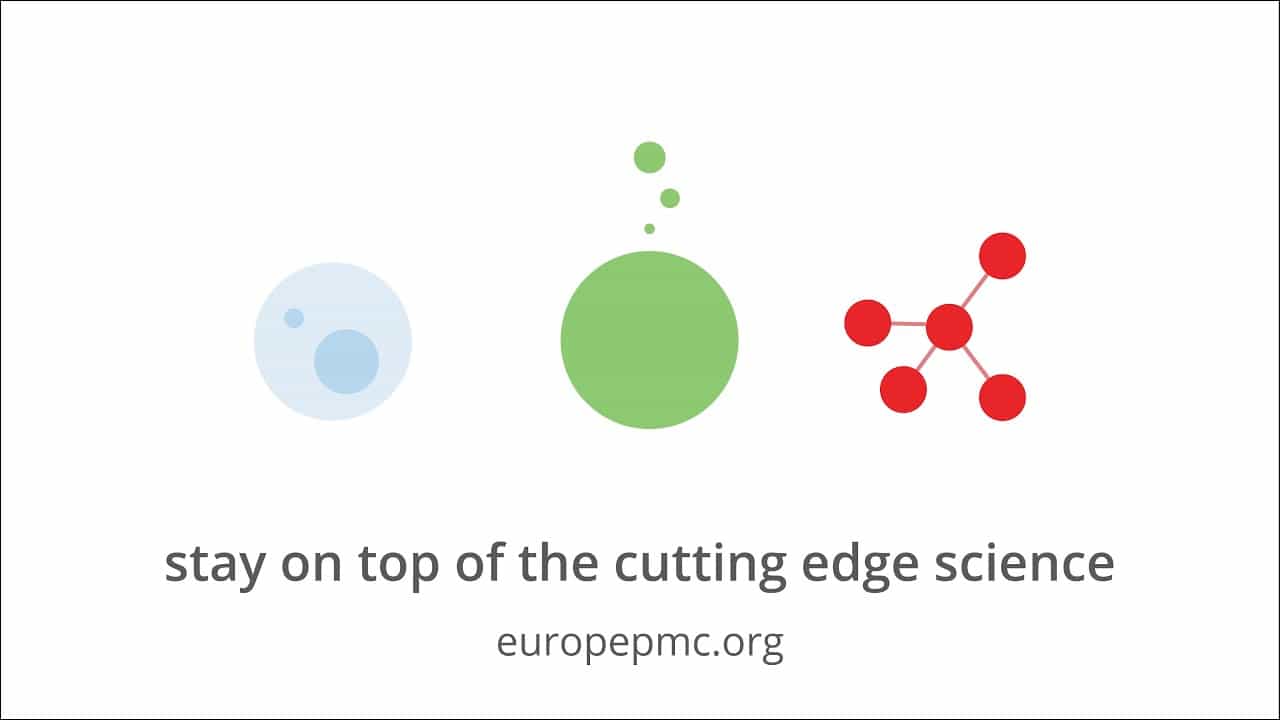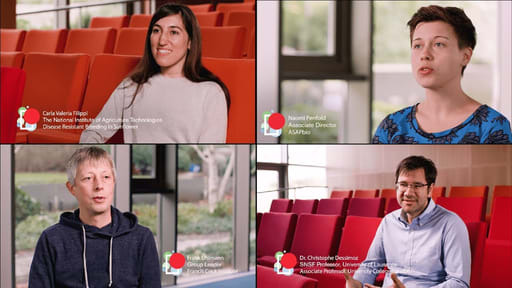Access a wealth of life sciences research, including preprints
Europe PMC contains
44 million abstracts
and
9.7 million full text articles, including research articles, preprints, micropublications, books,
reviews, and protocols. Europe PMC integrates content from a range of
sources such as PubMed, PubMed Central (PMC), Agricola, and
32 life science preprint servers including
biorxiv, Research Square, and Preprints.org. See
Preprints in Europe PMC for more information
about the integration of preprints, and the COVID-19 preprints full
text initiative. When the full text is not available, Europe PMC can
provide extended access to full text, with links to legal free copies
via
Unpaywall.
Connect research articles with other research resources
Research articles in Europe PMC are linked to data behind the paper,
which supports reproducibility. Articles are also linked to protocols,
smart citations, peer review materials and more. Preprints versions
are linked to each other, and to the journal published version, when
possible.
 44 million
44 million
research
articlesExternal content
& data resourcesResearch
enriched
with relevant
resourcesExamine data behind the paper
Europe PMC connects publications with high quality data in over 40
biological databases. This includes data that supports the results of
the publication, so that you can examine the evidence behind
scientific claims and for reproducibility of the results. Europe PMC
also includes links to curated biological resources, where you can
find out more about the data that cites the publication. Learn more
about Data in Help using Europe PMC.
Use intuitive and powerful search tools
Based on the latest technologies Europe PMC search helps you discover
research evidence even when it is buried deep in the literature.
Compared to other search engines, Europe PMC searches both
abstracts and full text of over
44 million articles, allowing you to find a greater number of relevant results. Our
high-performance search tools allow you to customize your queries,
enabling you to search specific parameters such as cited articles;
articles with open peer reviews or extended protocols; searches
limited to clinical trials or preprints, or even to specific article
sections, such as Methods or Figures. They help you search for data
behind publications and find papers providing biological models,
citing proteomics datasets, or describing protein structures. See
Advanced search and
Search syntax reference for more search
options.
In addition, Europe PMC offers the
Grant finder tool to enable searching for
105,162 biomedical grants from
35 life science funders, as well as
18,984 grants awarded for COVID-19 related
projects.
Showcase your work
Europe PMC supports researchers with author profile pages that
showcase and promote the author's scholarly work. The author profile
provides a graphical overview of published articles and preprints,
their open access status, as well as their citation rate over time.
Author profiles are based on the author's ORCID record. An
ORCID is a unique identifier for research
authors. The use of ORCID in Europe PMC makes it possible to refine
the author search, and receive suggested authors based on their ORCID
record. You can also add articles to your ORCID profile using Europe
PMC’s ORCID claiming tool.
Europe PMC operates a manuscript submission system (Europe PMC plus) on behalf of Europe PMC funders, who recommend or require
publications from the research they fund to be made openly available
via Europe PMC. Authors supported by Europe PMC funders can deposit
their manuscripts for inclusion in Europe PMC and by extension in
PubMed Central (PMC) using Europe PMC plus.
Find annotated biological concepts
Europe PMC uses text mining and machine learning techniques to
annotate literature with relevant biological terms and concepts, from
chemicals and cell lines, to gene mutations and protein interactions.
You can find biological terms in the text by using the Annotations
tool to select and find terms for highlighting. Over 1.3 billion
annotations covering 42 types of concepts are available. Find out more
about Annotations.
Get results with powerful programmatic tools
Europe PMC provides programmatic access to open content and metadata
for building diverse literature-based applications. Europe PMC offers
APIs for accessing publications and related information via the
Articles API, grant information from
Europe PMC funders and COVID-19 related grants via the
Grants API, and text-mined annotations
contained in abstracts and open access articles via the
Annotations API. See
Developer resources
for a full list of services provided. To make it easier to
programmatically search and retrieve specific research outputs, Europe
PMC integrates persistent identifiers, such as ORCIDs, Grant DOIs and
RORs.
If you would like to see examples of how Europe PMC APIs can be used
to create new products and services, please visit
API case studies.
Europe PMC strongly supports open source development. Open source
projects of particular interest to the user community are available on
Europe PMC
GitLab
and GitHub pages.
Take advantage of text-mining resources
For the text-mining community, a range of Europe PMC resources are
available as bulk downloads via the FTP site:
To make text-mining advances widely available for the benefit of the
research community Europe PMC has developed a dedicated
Annotations Submission System. It
allows expert text-mining providers to share their results on the
Europe PMC website via the
Annotations panel and
programmatically through the
Annotations API. The system can also
accept relevant statements manually curated by dedicated biocuration
groups.







































